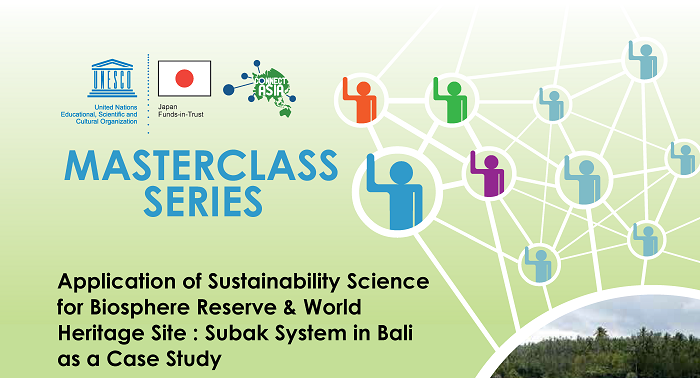Two days workshop with 4 sessions, 28 and 30 November 2017. The first session will introduce briefly the four session covered in the eight hours of UNESCO MasterClass on the “Application of Sustainability Science for Biosphere Reserve & World Heritage Site: Subak System in BALI as a Case Study”.
The four main components of Sustainability Science are :
- Focus on dynamic interactions between nature and society;
- Inter- & Transdisciplinary approach, i.e. how is the local and scientific knowledge developed and issues and problems identified by scientist and practitioner;
- Normative function, what lies behind the Subak system; and
- Transformational function, how the results of our workshop/ series of FGDs, participatory approach involving various actors stakeolders, local community, academia/ expert and government integrate in finding common issues and environing solution into action plan as part of the localizing SDGs process to find set of Goals and Targets of SDGs for Subak system
Finally, the four sessions of MSclass conclude that SuS functions as versatile tool in translating global agenda into local level, finding issues at local level by combining the Top-Bottom Approach manifested in Multilevel Sustainability Governance for Subak. Subak as WHS has potential for BR which supports the strong values of Tri Hita Karana philosophy that embedded in Balinese way of life, enhance the Social Capital of Pekaseh in a current, Subak as a potential living lab of education for sustainable development and Subak community based cultural tourism to support the zonation for Biosphere Reserves.

